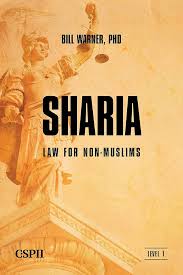A Comprehensive Overview of Sharia Law

Introduction
Sharia law, deriving from the Quran and Hadith, plays a pivotal role in the lives of millions of Muslims worldwide. Its relevance extends beyond religious observance, influencing legal systems, societal norms, and individual conduct across various regions. Understanding Sharia law is essential in grasping its impact on both Islamic nations and Western societies, especially in an era marked by growing cultural exchanges and legal pluralism.
Principles of Sharia Law
Sharia law encompasses a broad range of guidelines covering aspects of daily life, including ethics, family law, criminal justice, and economic transactions. The foundation of Sharia is based on two primary sources: the Quran, which is the holy book of Islam, and the Hadith, which includes the sayings and actions of Prophet Muhammad. These texts establish the framework for various principles such as justice, equality, and moral conduct.
Sharia in Practice
In practice, the implementation of Sharia law varies widely across different countries and communities. Some nations, like Saudi Arabia and Iran, incorporate Sharia into their legal systems, while others, such as Indonesia and Pakistan, apply it selectively in personal law matters. Moreover, there is a distinction between Sharia as a legal system and Sharia as a code of morality and ethics, which many Muslims observe privately regardless of the legal status.
Current Events and Developments
Recently, there have been significant discussions regarding the interpretation and application of Sharia law in contemporary society. Western nations have faced debates around issues such as religious freedom and integration as Muslim populations grow. For example, debates in the United Kingdom about the role of Sharia councils in family disputes highlight the complexities of reconciling traditional Islamic practices with secular laws.
Conclusion
As global interactions continue to evolve, the understanding of Sharia law becomes ever more important. While it can be a source of cultural richness and community identity for many, it also raises questions about compatibility with modern legal frameworks and human rights issues. In this context, ongoing dialogue and education will be vital in addressing misconceptions and fostering mutual respect among diverse communities. A careful balance between cultural heritage and modernity seems to be the way forward for societies grappling with these important issues.









